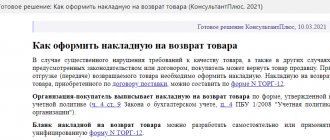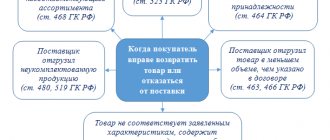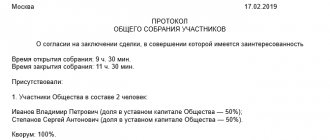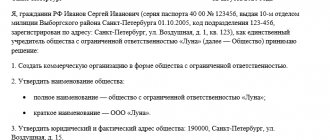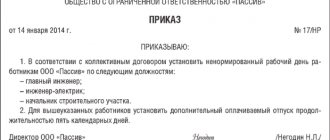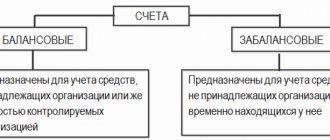Currency control: what is UNK
Until March 2021, instruction 138-I was in force, according to which participants in foreign trade activities received a transaction passport (TS). The limit for contracts is to exceed $50,000. For more than a year, Russian export and import companies have not completed the PS, which was the main currency control document. Currently, foreign trade agreements are registered with the bank at certain delivery amounts.
Now, for regulatory purposes, servicing banking organizations assign a UNK, which consists of the same set of numbers as the canceled PS. Decoding UNK - unique contract number.
| ▼ Execution of PS under agency agreements, commission agreements, instructions |
| ▼ How the amounts of interest payments under a loan agreement are taken into account in the PS |
| ▼ Are the amounts of fines, penalties and other similar payments taken into account in the PS? |
| ▼ Sending a completed transaction passport by the bank to the resident |
Extracts from the Information Letter of the Central Bank of the Russian Federation dated March 28, 2013 No. 42 “Questions on the application of Bank of Russia Instruction No. 138-i dated June 4, 2012 “On the procedure for the submission by residents and non-residents of documents and information related to foreign exchange transactions to authorized banks, the procedure for registration passports of transactions, as well as the procedure for accounting by authorized banks of foreign exchange transactions and monitoring their implementation" (hereinafter referred to as Instruction No. 138)":
2. Can paper documents drawn up in accordance with Instruction N 138-I by a resident legal entity (except for credit institutions) be signed by two persons entitled to the right of first or second signature stated in the card with sample signatures and seal imprint?
Clause 17.3 of Instruction No. 138-I establishes that when exchanging documents and information on paper, documents drawn up in accordance with Instruction No. 138-I by a resident legal entity (except for credit institutions) are signed by the person(s) authorized the right of the first or second signature stated in the card with sample signatures and seal imprints, and are certified by the seal imprint of a legal entity, a sample of which is affixed to the card with sample signatures and seal imprints of this legal entity.
Thus, paper documents drawn up in accordance with Instruction No. 138-I by a resident legal entity can be signed by one person vested with the right of the first or second signature, or by two persons vested with the right of the first or second signature declared on the card with samples of signatures and seal impressions.
3. Does the requirement of Instruction No. 138-I to issue a transaction passport (TS) apply to agency agreements, commission agreements, agency agreements concluded between a resident and a non-resident, if, in accordance with the terms of such agreements, the agent’s (commission agent’s, attorney’s) remuneration is withheld from proceeds of the principal (principal, principal)? If a transaction passport under such agreements is drawn up, what amount is indicated in the transaction passport in column 5 of section 3 “General information about the contract” as the total amount of obligations under the contract?
Based on subclauses 5.1.1 and 5.1.3 of clause 5.1 and clause 5.2 of Instruction No. 138-I, the requirements of Section II of Instruction No. 138-I apply, inter alia, to agency agreements, commission agreements, commission agreements concluded between residents and non-residents and providing for the implementation currency transactions related to settlements through resident accounts opened with authorized banks and (or) through resident accounts opened with non-resident banks, if the amount of obligations under such an agreement exceeds the equivalent of 50 thousand US dollars on the date of conclusion of the agreement (on the date conclusion of the latest amendments (additions) to the contract).
Considering that Chapter 5 of Instruction No. 138-I does not make exceptions in relation to agency agreements (commission agreements, mandates) concluded by residents with non-residents, in accordance with the terms of which the agent, commission agent, attorney withholds his remuneration from funds transferred to the principal, principal , to the principal, on the basis of clause 6.1 of Instruction No. 138-I, the transaction passport is issued by the resident.
Based on paragraph 6 of the procedure for filling out the transaction passport, given in Appendix 4 to Instruction No. 138-I, in column 5 of section 3 “General information about the contract” (Form 1 PS) the total amount of the obligation under the contract is indicated. In this case, the total amount of obligations under the contract is understood as both funds that are the remuneration of the agent (commission agent, attorney), regardless of whether the amount of remuneration is withheld or subject to transfer, and other funds that, in accordance with the terms of the contract, are subject to transfer to the agent, commission agent, attorney. If there is no information in the contract to fill out column 5, when registering the PS, the symbol “BS” is entered in column 5.
4. Are the amounts of interest payments under the loan agreement taken into account as part of the total amount of obligations indicated in column 5 of subsection 3.1 “General information about the loan agreement” (Form 2 PS, sheet 1)?
The procedure for filling out Form 2 PS (Appendix 4 to Instruction No. 138-I) provides for the reflection of interest payments in a separate additional section 8 “Special information about the loan agreement” of sheet 2 of the transaction passport.
In this regard, interest payments are not taken into account when the resident reflects the amount in column 5 of subsection 3.1 “General information about the loan agreement” (form 2 PS, sheet 1). This column indicates only the amount of the principal debt under the loan agreement.
5. Are the amounts taken into account as part of the total amount of obligations indicated in column 5 of section 3 “General information about the contract” (form 1 PS) and in column 5 of subsection 3.1 “General information about the loan agreement” (form 2 PS, sheet 1) fines, penalties and other similar payments provided for by the terms of the contract? Are such payments reflected in the bank control statement?
In accordance with paragraph 5 of clause 6 of the procedure for filling out the transaction passport (Appendix 4 to Instruction No. 138-I), column 5 of section 3 “General information about the contract” (Form 1 PS) indicates the total amount of obligations stipulated by the contract under which the PS was drawn up.
Based on Chapter 25 of the Civil Code of the Russian Federation, fines, penalties and other payments of a similar nature do not relate to obligations under the contract, but are a way of ensuring the fulfillment of obligations. Thus, the amounts of fines, penalties and other similar payments are not taken into account when determining the total amount of obligations under the contract in column 5 of section 3 “General information about the contract” (Form 1 PS).
In this regard, based on the provisions of Chapter 9 of Instruction No. 138-I, the resident has no obligation to submit to the authorized bank a certificate of supporting documents and documents confirming the payment of fines, penalties and other similar payments.
At the same time, in the certificate of currency transaction submitted in accordance with Chapters 2 and 3 of Instruction No. 138-I, the resident should indicate the code of the type of currency transaction 35030 (35040) in accordance with Appendix 2 to Instruction No. 138-I and the number of the transaction passport within the framework of which such payments are made, with information about these payments reflected in section II of the bank control statement.
Based on paragraph 5 of the procedure for filling out the bank control sheet under the contract, given in Appendix 6 to Instruction No. 138-I, in Section V, payments related to the payment of fines, penalties and other similar payments provided for by the terms of the contract are not taken into account when calculating the balance.
A similar approach is used when filling out column 5 of subsection 3.1 “General information about the loan agreement” (form 2 PS, sheet 1) and reflecting the information in the bank control statement.
7. When a resident submits to the authorized bank for registration of a transaction passport a completed transaction passport form on paper and the authorized bank accepts for servicing a contract (loan agreement) and a transaction passport, can the authorized bank return the same transaction passport form to the resident on paper with a mark on the assigned transaction passport number and, accordingly, consider your obligation to send the resident a completed transaction passport in accordance with paragraph 6.8 of Instruction No. 138-I fulfilled? In this case, should a copy of the transaction passport on paper be placed in the currency control file?
In accordance with clause 6.6 of Instruction N 138-I, in order to issue a transaction passport, the resident submits to the authorized bank at the same time one copy of the PS, filled out in the manner given in Appendix 4 to Instruction N 138-I, as well as others listed in clause 6.6 of Instruction N 138-I And documents and information.
In accordance with clause 6.8 of Instruction N 138-I, if an authorized bank accepts a contract (loan agreement) for servicing and issues a PS under it, the authorized bank, within the time limit established by clause 6.7 of Instruction N 138-I, forms a PS in the form of an electronic document, assigns a PS number and ensures maintenance and storage of software in electronic form. The PS is considered issued after the bank assigns it a PS number and affixes the date of registration and signature of the responsible person. The issued PS no later than two working days after the date of its registration is sent by the PS bank to the resident. This rule applies to cases where a PS bank sends a transaction passport to a resident, both on paper and in electronic form.
In this regard, if a resident submits a completed transaction passport on paper, the authorized bank, when issuing a transaction passport in accordance with paragraph 6.8 of Instruction No. 138-I, has the right to return to the resident the transaction passport received from the resident with the transaction passport number and date stamped on it. registration and on each page the signature of the responsible person and the seal of the authorized bank. In this case, the obligation of the authorized bank to send the resident a completed transaction passport in accordance with clause 6.8 of Instruction No. 138-I will be considered fulfilled.
A copy of the completed transaction passport on paper, submitted by the resident to the authorized bank for its registration, may be placed by the authorized bank in the currency control file in the cases and in the manner established in the internal documents of the authorized bank in accordance with clause 19.1 of Instruction No. 138-I.
Limits in currency control
Instruction No. 181-I provides for increased amounts to regulate international transactions. A separate gradation is also applied for various types of agreements (previously there was a single value of 50 thousand dollars). The foreign trade participant is obliged to register the agreement with the bank where the account is opened for international settlements with the counterparty, if the transaction amount is:
- 3 million rubles - for import agreements;
- 6 million rubles - for export transactions.
If the amount of the foreign trade agreement does not exceed 200,000 rubles, the company does not submit the agreement to the bank. Let us note that it is not legally prohibited to conclude a separate contract for each delivery in the amount of up to 200 thousand rubles. In such cases, a participant in a foreign economic transaction will have to go through the full procedure of currency regulation at the bank.
{amo_bottom_currency}
For operations in the range of 200 thousand rubles - 3 and 6 million rubles. foreign trade companies provide a contract to a banking organization without registering a registration document.
Cancellation of a transaction passport
March 2, 2018
On March 1, 2021, Bank of Russia Instruction No. 181-I dated August 16, 2017 “On the procedure for residents and non-residents to submit supporting documents and information to authorized banks when carrying out currency transactions, on uniform forms of accounting and reporting on currency transactions, procedures and deadlines” came into force their submission”, which cancels the procedure for issuing passports of transactions under foreign economic agreements/contracts.
What's new:
- Transaction passports and certificates of currency transactions are cancelled, and the certificate of supporting documents becomes a unified form of accounting and reporting on currency transactions.
- Procedure introduced accounting of contracts/deregistration of contracts with the bank assigning a unique number to the contract, which replaces the previously existing procedure for opening/closing a transaction passport, and applies to the following types of contracts:
- Agreements, including agency agreements, commission agreements, agency agreements, providing for the export from the territory of the Russian Federation or import into the territory of the Russian Federation of goods, with the exception of the export (import) of securities in documentary form.
- Agreements providing for the sale (purchase) and (or) provision of services related to the sale (purchase) on the territory of the Russian Federation (outside the territory of the Russian Federation) of fuels and lubricants (bunker fuel), food, inventories and other goods (except for spare parts and equipment) necessary to ensure the operation and maintenance of vehicles, regardless of their type and purpose along the route or at intermediate stops or parking points.
- Agreements, including agency agreements, commission agreements, commission agreements, providing for the performance of work, provision of services, transfer of information and results of intellectual activity, including exclusive rights to them.
- Agreements providing for the transfer of movable and (or) immovable property under a lease agreement, financial lease (leasing) agreements
- Agreements the subject of which is the receipt or provision of funds in the form of a credit (loan), the return of funds under a credit agreement (loan agreement), as well as the implementation of other currency transactions related to the receipt, provision, return of funds in the form of a credit (loan) (with the exception of agreements (contracts (agreements) recognized by the legislation of the Russian Federation as a loan or equivalent to a loan) (hereinafter referred to as the loan agreement).
- The threshold value for accounting for contracts is changing - now it will be 3 million rubles or the equivalent in foreign currency for all types of import and credit contracts and 6 million rubles for all types of export contracts (previously it was 50,000 US dollars or the equivalent in another currency).
- The terms for recording contracts are being reduced - they will be 1 (one) business day from the date the contract itself/information about it is submitted to the bank.
- The bank makes changes to the information about the contract based on the person’s application and the provision of supporting documents within 2 business days from the date of their submission.
- The list of operation codes changes slightly.
- There is no need to send documents related to transactions to the bank if all the following conditions are met:
- the amount of obligations under the contract is no more than 200 thousand rubles;
- under the agreement, foreign currency is credited to the resident’s transit account or funds are written off from his foreign currency current account.
Consequences for previously opened transaction passports that, as of March 1, 2021, have not yet been closed (contracts have not been executed):
- transaction passports are considered closed without a mark indicating their closure, however, the contract itself, in respect of which the transaction passport was opened, is subject to accounting in accordance with the new requirements;
- the transaction passport number becomes a unique contract number and the contract is subject to accounting in the bank’s system in accordance with the new requirements.
In this regard, for contracts for which transaction passports have been opened, virtually nothing changes; you just need to comply with the requirements of the instructions during its further execution and close the contracts by deregistering the contract according to the new rules.
Additional information regarding contract requirements
It should also be borne in mind that from May 14, 2021, amendments to the Federal Law “On Currency Regulation and Currency Control” relating to foreign economic contracts will come into force. In particular, the law is supplemented with the following resident obligation:
In order to fulfill the requirement for the repatriation of foreign currency and the currency of the Russian Federation, agreements (contracts) concluded between residents and non-residents when carrying out foreign trade activities must indicate the deadlines for the parties to fulfill their obligations under the agreements (contracts) .
When carrying out foreign trade activities, residents are required to provide authorized banks with information:
- On the timing of receiving foreign currency and (or) the currency of the Russian Federation from non-residents to their accounts in authorized banks for the fulfillment of obligations under foreign trade agreements (contracts) by transferring goods to non-residents, performing work for them, providing them with services, transferring to them information and results of intellectual activity , including exclusive rights to them, in accordance with the terms of foreign trade agreements (contracts).
- On the timing of fulfillment by non-residents of obligations under foreign trade agreements (contracts) by transferring goods to residents, performing work for them, providing them with services, transferring to them information and results of intellectual activity, including exclusive rights to them, on account of advance payments made by residents and the timing of return specified advance payments in accordance with the terms of foreign trade agreements (contracts).
The absence of these conditions will be an additional basis for refusal to register foreign economic agreements (contracts) with the bank or for refusal to conduct foreign exchange transactions.

